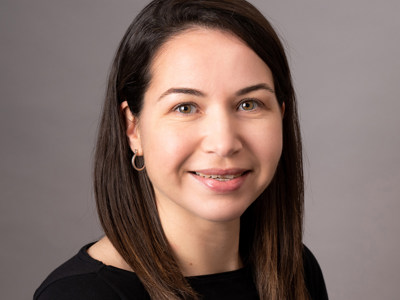
Death of Paul Davis, aged 33, was contributed to by failures of South West London and St George's Mental Health NHS Trust concludes inquest jury
The death of brain injured patient Paul Davis, aged 33, in November 2018 was contributed to by failures of South West London and St George's Mental Health NHS Trust, an inquest jury has concluded.
Posted on 19 June 2024
In a narrative conclusion, the jury at West London Coroner’s Court has found that the care provided to Paul at Springfield University Psychiatric Hospital in Tooting during his admission between July and November 2018 was chaotic and inadequate, and the decision to grant him unescorted leave from which he never returned materially contributed to Paul’s death.
On 25 November 2018, 12 days after being granted unescorted leave from hospital where he was detained under the Mental Health Act, Paul’s body was found by a dog walker on the side of the Great West Road. It appeared he had been sleeping rough in near freezing temperatures. The medical cause of death was fatal alcoholic ketoacidosis.
Paul had significant cognitive impairment following a life-changing brain injury sustained when he was knocked off his bike by a speeding vehicle in East Acton when he was 10 years old. The car was travelling at 58mph in a 30mph zone, his mother Shirley Studd told the inquest.

She said Paul suffered a complete personality change, and she believed that as an adult, her son should have been provided accommodation in a brain injury rehabilitation unit. He lacked capacity to manage his own affairs and he was detained due to self-neglect and dangerous alcohol use.

The inquest into Paul’s death was held after a delay of nearly six years at West London Coroners’ Court from 3 June to Wednesday 12 June 2024.
The jury heard from an independent expert in neuropsychiatry, who agreed with Shirley that Paul should have been placed in a specialist neurorehabilitation unit with the expertise to understand and meet his needs, rather than in general psychiatric ward at Springfield Hospital.
The expert described decision making on the ward as “chaotic and precipitous”.
The jury also heard evidence from Paul’s Court appointed deputy who described the chaotic handling of Paul’s case as “unprecedented in his 30-year career”.
The jury concluded that the decision to grant Paul leave from the hospital on 13 November 2018 without any documented risk assessment or contingency plan and with no means of contacting Paul (as he did not have a phone) was inappropriate and contributed to his death.
The independent expert assessed Paul’s risk of self-neglect and harmful use of alcohol as “high to the point of inevitability” and that the decision to grant him unescorted leave exposed him to a “perilous situation”.
The coroner and jury heard that hospital staff waited three hours before notifying the police that Paul had failed to return to the ward. When they did tell police he was missing, they provided an inaccurate description and failed to mention that Paul was significantly cognitively impaired because of a childhood brain injury and was incapable of looking after himself.
Three days went by before the hospital gave police Shirley’s telephone number.
Following the conclusion of the inquest, Shirley Studd said:
“It has been almost six years since my son Paul died in the terrible circumstances described to the court. No family should be made to wait for six years before the reasons for a loved one’s death can be examined, the wait has been painful and soul destroying. We have been made to feel as if Paul’s life did not matter.
“The court has heard about the care Paul received, the decisions about where he should live, the awful chaotic way he was allowed to leave the ward. All of that was hard to hear, but we are grateful to the jury for listening and for taking account.
“But for me, Paul’s mother, the very worst part of the story has been the pitiful and shameful way my son was left to roam the streets and die alone at the side of the road. To know that my son suffered in that way is sickeningly painful and I will never be able to forget it.
“I can only hope that Springfield Hospital has changed its systems and that this never happens to another family.”
Shirley Studd is represented by Yvonne Kestler of law firm Leigh Day and Stephen Clark of Garden Court Chambers.
Yvonne Kestler said:
“It has taken almost six years for a full and thorough investigation into Paul’s death to finally take place. The inquest revealed a catalogue of errors and omissions by staff at Springfield Hospital. The narrative conclusion returned by the jury described Paul’s treatment and care as chaotic and inadequate. The family have fought long and hard and their tenacity has meant that they have been able to find answers which vindicated their concerns. We hope that through failings identified that lessons will be learnt which might go some way to preventing such tragic loss of life.”

Yvonne Kestler
Yvonne Kestler is a senior associate solicitor in the human rights department.

Human rights
If you believe your human rights have been denied our human rights and civil liberties team is one of the leading teams of practitioners in this specialist area in the country.

Patient died from choking on a sandwich after failings at mental health hospital in Gloucestershire delayed emergency response, inquest finds
Failings at Wotton Lawn Hospital in Gloucester delayed the emergency response to a 41-year-old woman who died after choking on a sandwich, an inquest has found.

